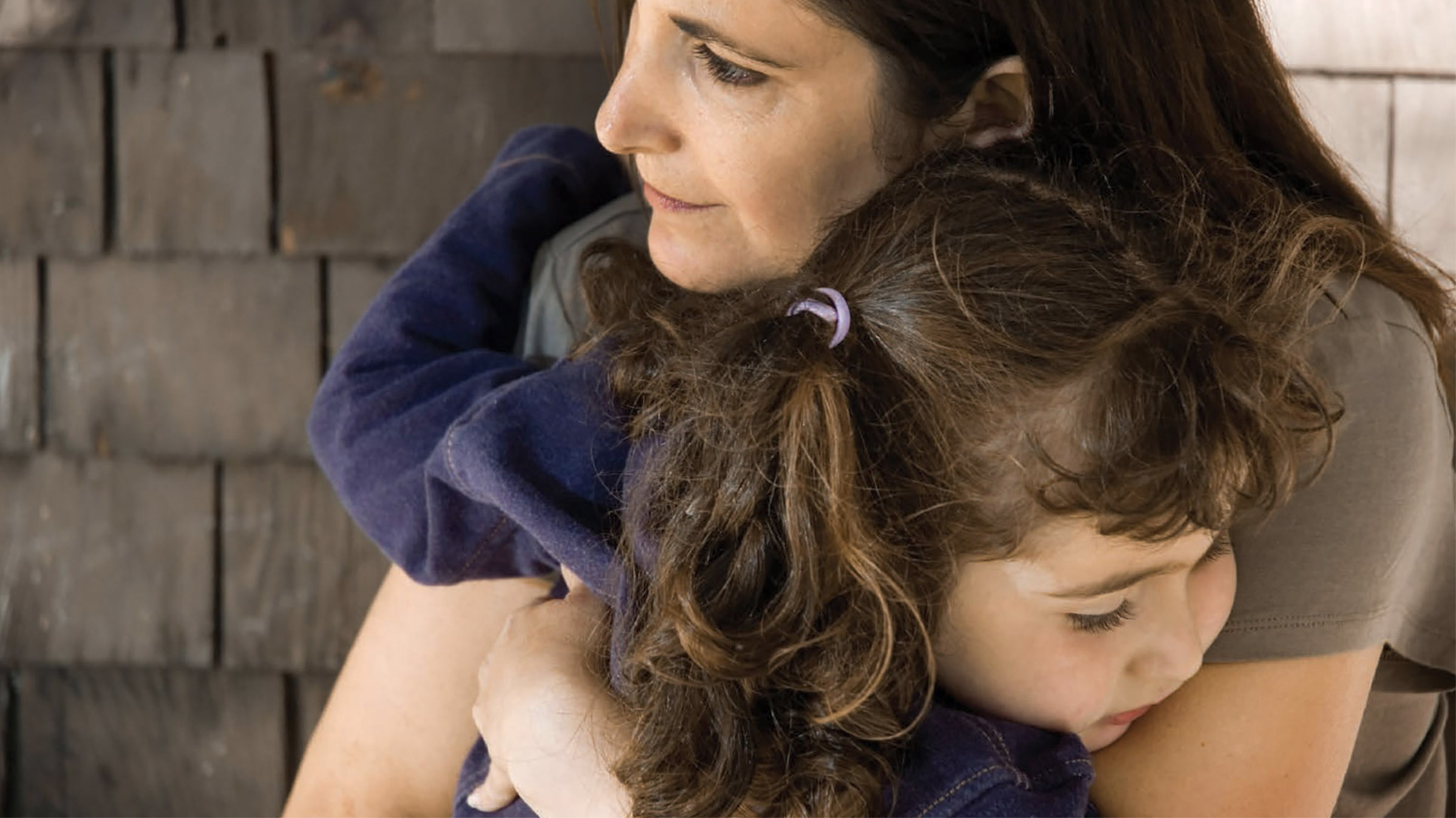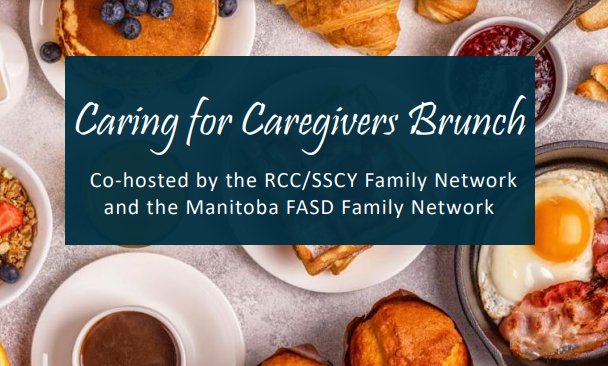Welcome to WEEK #7 of the Creative Substitute for “Building Circles of Support!”
Hello Again Everyone!
Our topic this week is FASD and Managing Behaviour!
Who out of us hasn’t been puzzled as to what to do when our child or adolescent has a “behavioural meltdown”? Or is exhibiting, uncooperative, inappropriate, or aggressive behaviour? Whether it’s physical or verbal, FASD and behaviour is challenging to deal with. Last week we discussed the importance of taking a brain-based approach to behaviour, and “Trying Differently Rather than Harder” when working with individuals with FASD. This is especially important when it comes to this week’s topic of understanding and managing challenging behaviour. Brain-based differences with processing information and managing emotions can result in meltdowns and acting out behaviour at times. It’s easy to “talk-the-talk” when it comes to managing behavior, however it’s quite another thing to “walk-the-walk”, or put it into action in the heat of the moment when we are overwhelmed or exhausted ourselves. What exactly is meant by “Trying Differently” anyway? Through some of our discussions and resources this week, we will try to understand why children and youth with FASD may be exhibit challenging behaviours at times, and how we can support them while managing our own feelings and well-being.
- In our first section this week, Susan OpieBA, BSW, MSW, RSW, who is a skilled therapist who has worked with Adolescents with FASD for many years, provides us with some understanding and strategies one might use when confronted with behaviour. Susan talks some approaches to parenting and caring for our children that can help support you and your child.
- What is discipline?
Let’s look at the word discipline for a moment. So often when we talk about discipline we are thinking of punishment and consequences. I find many people see punishment and consequences as absolutely necessary for parenting. Unfortunately, research shows punishment is the least effective way to teach anything to anyone! And if that weren’t enough of a shock to our beliefs, punishment is a particularly difficult way for our children with FASD to learn.When we look at the root of the word discipline it means to teach. When we raise children, our job as parents is to help them learn to be the best person they can be:
• We use many tools to teach them.
• We role model behaviour.
• We talk with our children and explain things to them.
• We set up their environment to support safety when we ‘baby proof’ our houses.
• We set up a structure that supports getting up in the morning, eating regular meals, doing daily activities, having quiet times, and so on.All children learn from what we do, how we interact with them, what rules and environments we have. When we look at the areas of brain functioning that may be different in our children with FASD, finding different ways to parent almost always leads to better outcomes: our children do better with their behaviours, and parents are then less stressed. Unfortunately there is no menu of dos and don’ts that work for everyone with FASD, so let’s look at some principles of how to approach concerns we may have about behaviour in our children with FASD:
- Avoid Power Struggles!
Because of the differences in how the brains of children with FASD work, our children are often more dependent on having familiar structure and consistent ways of doing things. Being flexible to changing situations can be difficult for many children with FASD.Children with FASD frequently benefit from what Diane Malbin has called a “gift of time.” In other words, if we insist they comply with a request very quickly, we often set up a dynamic where the child will melt down. If we prepare them for what is to come, and give them that gift of time, they may be able to do what we are hoping for.Getting into power struggles with our kids, saying ‘do this’ to which they respond ‘no’ or with melt down behaviours, does not work well for our kids with FASD. They get very upset, behave badly, and are ‘stuck’ unable to get back to managing their emotions and behaviours. And of course we as the caregivers become upset and stressed too. Rod Densmore, a parent in BC, has suggested that if we ‘avoid backing a child, youth, or adult with FASD into a corner’ things go a lot better, with way less stress for all involved. We metaphorically ‘back our children into a corner’ when we make too many demands of them, or demand a quick response, or get into power struggles of ‘yes you will’, and they go ‘no I won’t’.Take a minute or two to make a list of all the things you could do that you would guarantee your child with FASD would have a meltdown within a minute or two. This list then gives you a lot of ideas of what not to do, and is a beginning place of what else to do in these situations.
- Reduce Stress
Research has shown that individuals with FASD are quickly and easily put into strong stress reactions. Think about the fight, flight, and freeze responses we all have if we feel unsafe or threatened, and how unpleasant it is to feel all the stress hormones running through our bodies.For many children with FASD, these stress reactions are set off frequently and quickly. Think about how the classic stress reactions look in terms of behaviours we may have difficulty with:
| Stress Response | Behaviours | Outcomes |
|---|---|---|
| Fight | Verbal/emotional outbursts Hitting people
Breaking things |
Anger Hurt feelings
Damaged relationships Property damage Criminal charges (teens) |
| Flight | Running away from school or caregiver Missing children
AWOLs with teens |
Fear and worry Harm from running into traffic or other unsafe areas
Exploited teens |
| Freeze | ‘Shut down’ Can’t communicate or engage with others | Hurt Misunderstandings
Outbursts if pushed to ‘come out of it’ |
It is much easier to prevent strong stress reactions than it is to recover from them. The child’s body has to slowly clear all the stress hormones and all the impact of these hormones.
- Learn to recognize the signs of approaching meltdowns.
- Teach and role model taking breaks to bring down the stress.
- Avoid power struggles as much as possible.
- Learn about what stresses your child. Think about how to avoid or minimize these events.
- As children get older, help them learn what works for them to prevent serious stress reactions.
- What about Consequences?
Difficulty with cause and effect reasoning, make consequences and punishments ineffective for many children with FASD. Consider other teaching and parenting tools whenever possible. If you do use consequences:
DO make them immediate and time limited. DO make sure child understands the connection between behaviour and consequence. Do NOT ASSUME that they do understand. Ask them what led to the consequence. Their answer can be very revealing! DO NOT use Natural Consequences without a lot of thought. For example, most children will come back in for their mitts if the weather is very cold. A child with FASD may not notice they are cold and get severe frost bite. DO NOT use any consequence if it is not clearly helping your child learn what you hope they will learn. Consequences can leave children feeling unloved, misunderstood, and put them at risk of emotional and behavioural difficulties. Time Outs are frequently not effective for children with FASD especially if they have memory difficulties or issues with impulsivity. Use calming strategies, and invite children and youth into calming activities proactively when you notice things are beginning to get more difficult. - S.T.O.P. and Think
When things are not going as you would hope:
Stop!
Step back.
Think through what is happening.
Respond from a calm stance.
Take Care of You! You are so important to your child! They need your support! Remember: Self-care, Self-care, Self-care!
- Our next resource this week is a podcast on Understanding FASD and Aggression with Dr. Mansfield Mela. Although he focuses mostly on aggression, he refers to many other types of behavior in FASD as well. He discusses what is happening in the brain during aggression, the reasons for aggression, as well as what can trigger it. Finally, he ends up giving us some practical strategies to help make our lives easier in managing behavioral episodes.
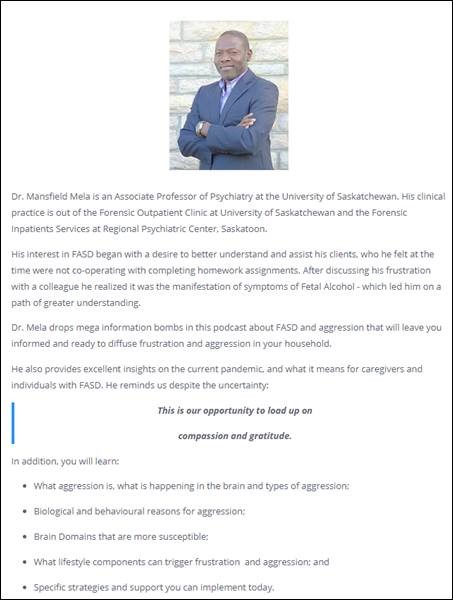
- In our final section this week, we have a number of videos presented by Nate Sheets from Oregon Behaviour Consultation, to help us understand why kids with FASD and other neurodevelopmental differences may exhibit challenging behavior, and gives us some ideas to manage and prevent it in the future.
- In our first video, “Why Do Kids and Teens Have Challenging Behaviours?”, Nate explains the importance of understanding that often challenging behaviours are not actually a willful or intentional effort by the child to be “difficult”, but rather may be the result of not having the cognitive skills needed to be successful in that moment, and that sometimes traditional parenting approaches that many of us are familiar with (like time-outs), may not be as effective for kids whose brains work differently. In this next video, he reminds us that sometimes we as parents, caregivers, and educators may have Unreasonable Expectations of what our child is capable of in a particular moment, and also points out that this can vary depending on the day, the environment, or how the preceding part of that day has been for the child our youth.
- Now that we have a better understanding of why challenging behaviours might occur, in this next video, Nate introduces the concept of Cognitive Supports, to understand which cognitive skills might already be more challenging for individuals with FASD resulting in undesired behaviour, and how we can better support them in the future to have a more successful outcome for both the child and the parent. Another strategy discussed by Nate Sheets is providing Cognitive Support With Schedules. We have put together a couple of tip sheets (below) to highlight some of these cognitive supports.
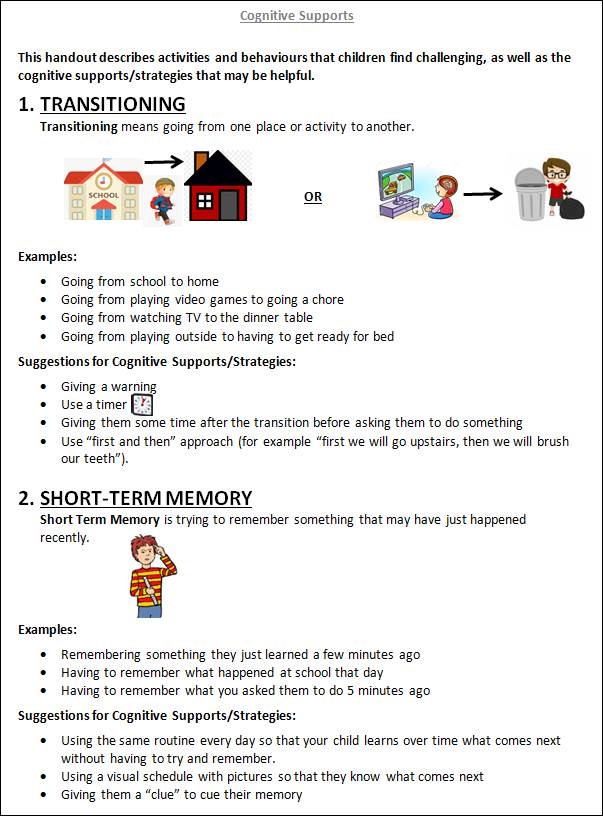
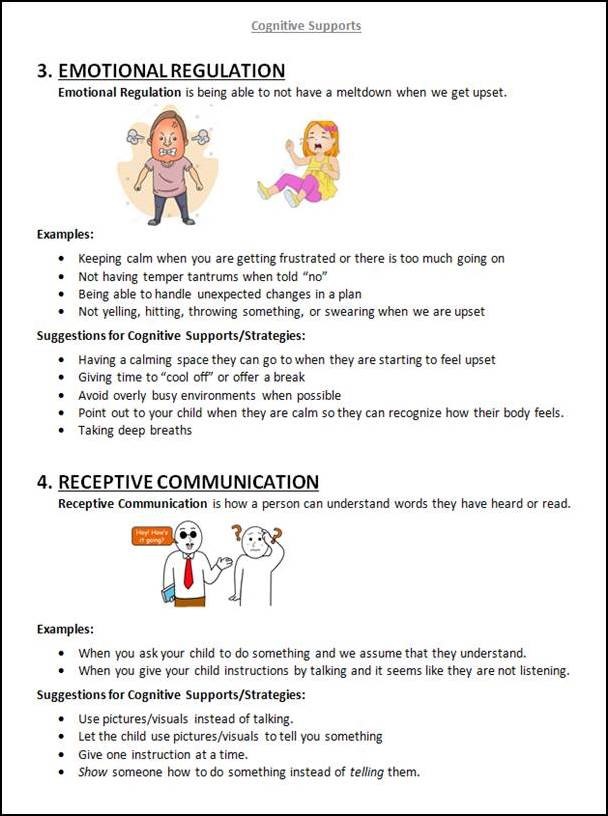
- It is probably inevitable that frustrations and behaviours may still escalate at times. After all, we all get escalated from time to time, and the susceptibility to fight-or-flight responses in some of our kids and youth with FASD might mean this escalation happens more frequently or with more intensity. In this video, Nate Sheets talks about Handling Escalation, and reminds that in the midst of escalation is not generally the time to have a teaching moment, but rather we may need to shift our expectations and just focus on de-escalating or getting calmed down. In our last video this week, Nate explains how developing and Practicing a Plan Can Help with Emotional Regulation. He emphasizes that it is important to develop and practice this plan when your child is calm and not escalated, so that both the parent and caregiver are more skilled at putting the plan into action when things start to escalate.
We hope that some of these resources have been helpful for you this week. We recognize that you might be seeing more behavioural challenges during this uncertain period of COVID-19, as changes in routines and changes in the people and systems that support our kids can impact their ability to cope, even if they can’t or don’t express this verbally.

